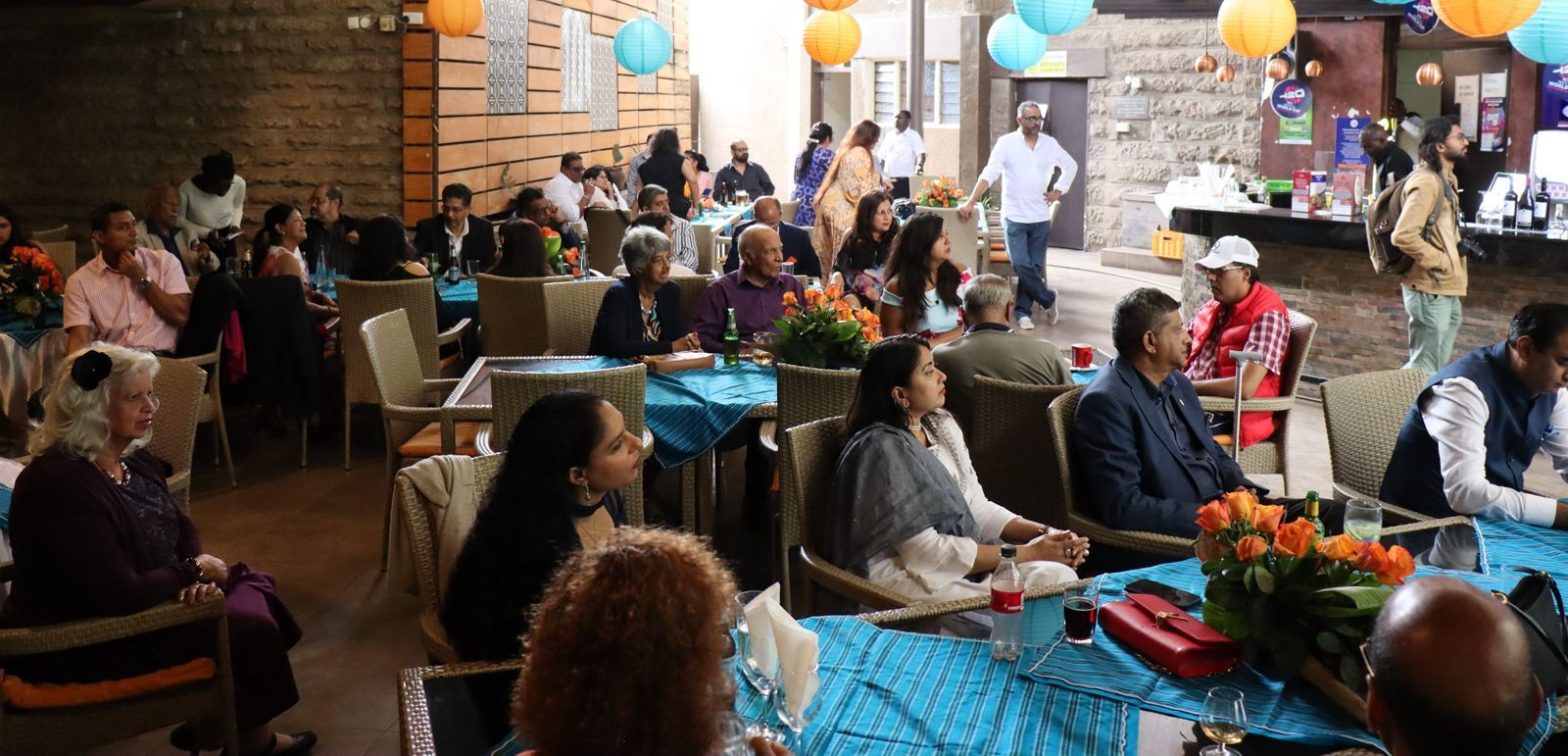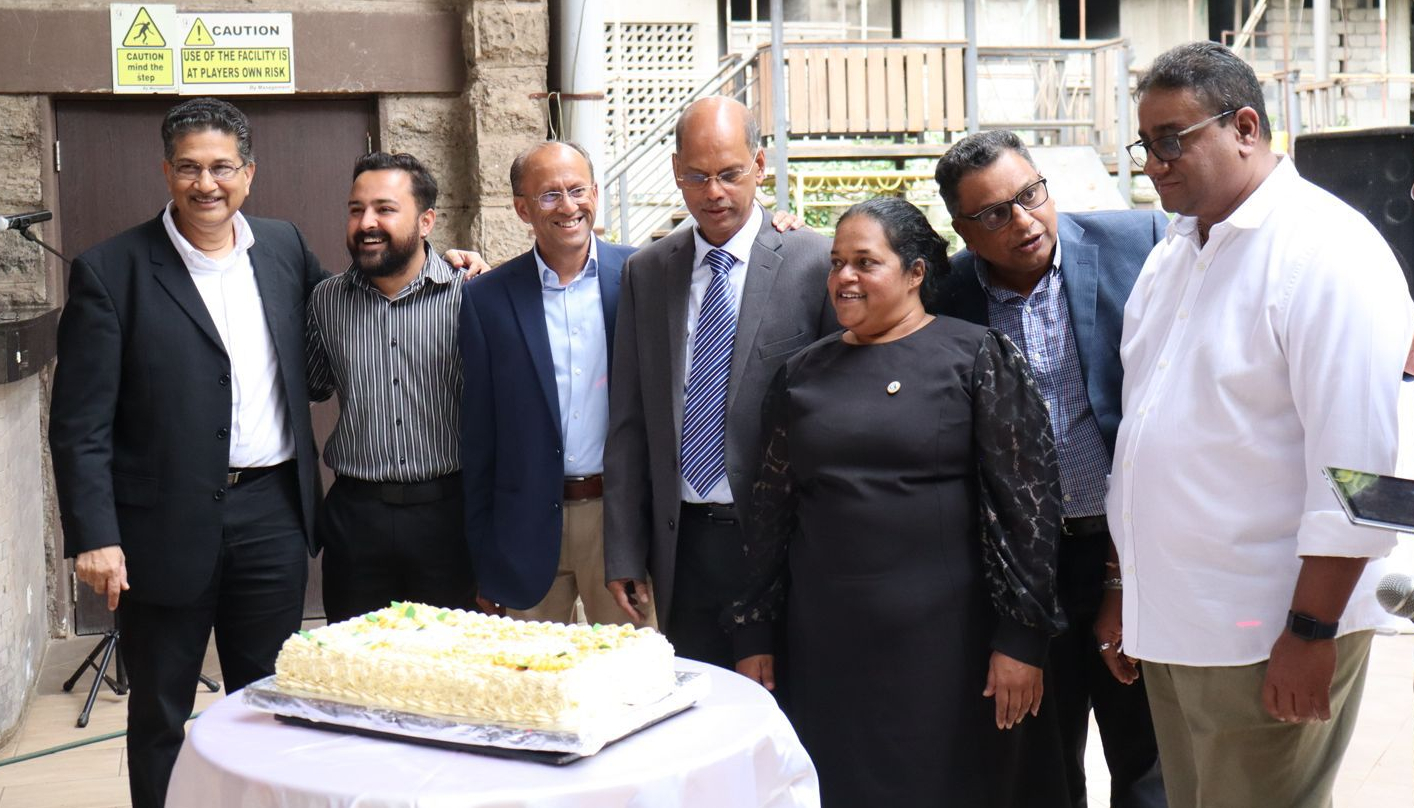Founded in 1905, the Goan Institute is one of the oldest surviving Goan institutes in the world and will celebrate 120 years of existence in June 2025

Members of the Goan Institute (GI) at Nairobi during the 119th anniversary celebration of the institute.
PANAJI
A new management committee has recently been elected at the Goan Institute (GI) at Nairobi, which is one of the oldest surviving Goan institutes in the world.
Founded in 1905, the GI is the second oldest sports and cultural institute in Kenya and will celebrate 120 years of existence in June 2025.
NEW GI COMMITTEE
The new management committee comprises Abhijeet (Raja) Sarkar (Chairperson), Gale D'Costa (Vice-Chairperson), Cheryl de Souza (Honorary General Secretary), Peter D'Costa (Honorary General Treasurer), Arti Shah Kanani (Honorary Assistant Secretary), Insiya Bhaijee (Honorary Assistant Treasurer), Derek Pema (Honorary Sports Secretary), Dr Sean Quadros (Honorary Assistant Sports Secretary), Santano Fernandes (Honorary Social Secretary), Lee Ann Vaz Joly (Honorary Assistant Social Secretary), and Dominic (Nique) Rattos (Honorary Secretary For Buildings).
When contacted, GI Chairperson Abhijeet (Raja) Sarkar, who previously served as vice-chairperson in the previous GI managing committee, said his new committee has many new faces.
“We have plans to hold a membership drive to add more members to the GI. The GI seeks to maintain its Goan identity and culture, while also welcoming people of all communities as members of the institute. We also plan to bring back value to members,” said Raja.
SPORTS, SOCIAL HERITAGE
Raja said the GI has a vibrant and strong sporting and social heritage.
“The GI is involved in a number of sports and many of our players have excelled in tournaments at the highest level,” said Raja.
“The GI cricket team has participated in the province and at national level. The GI snooker and hockey teams have had players performing at the national level. Four GI hockey players also represented Kenya at the master’s level (above 40 years).”
“In the darts section, three players represented the GI at the Africa level. We also have teams in badminton, squash, tennis and table tennis.”

Some members of the management committee and trustees during the 119th anniversary celebration of the Goan Institute (GI) at Nairobi.
Raja informed that the GI also has an active social calendar throughout the year.
“We have a Halloween party, karaoke nights, and events for seniors. During the festive season, the GI will host a Christmas party, a Senior’s parties, and a New Year’s Eve party,” he said.
Raja mentioned that the GI shares good relations with other clubs in Nairobi and has been building relations with other communities.
HISTORY OF GOAN INSTITUTE
Strangely enough, a cricket game was to conceive the Goan Institute, Nairobi. The Portuguese Cricket Club established in 1890 was its “birth cell”. The Indo Portuguese Institute formed by a resolution at a General Meeting of Goans on June 11, 1905, provided the embryo which later grew into ‘The Goan Institute Nairobi’, a name it acquired on May 19, 1906. Dr Rebeiro. O.B.E was its first President.
Leandro D’Mello laid the foundation stone of the first GI situated on Duke Street (now Ronald Ngala Street) on July 22, 1906.
The Institute was one of the few stone structures in the Nairobi of those days and served as the focal point of Goan social and sporting activities up to 1955 when the Golden Jubilee of the Institute was celebrated.
The idea of erecting the present building was mooted in 1946. The property on Duke Street was sold to the East African Breweries Ltd and this sum together with funds contributed by members resulted in the construction of the present clubhouse.
The foundation of the new Goan Institute was laid on September 20, 1955, and it was inaugurated on June 11, 1957.
The Goan Institute has served social, literary, dramatic and sporting needs of its members. It was the nursery for outstanding sportsmen who ushered Kenya on to the world sporting scene, in which many of its members have been in the limelight.